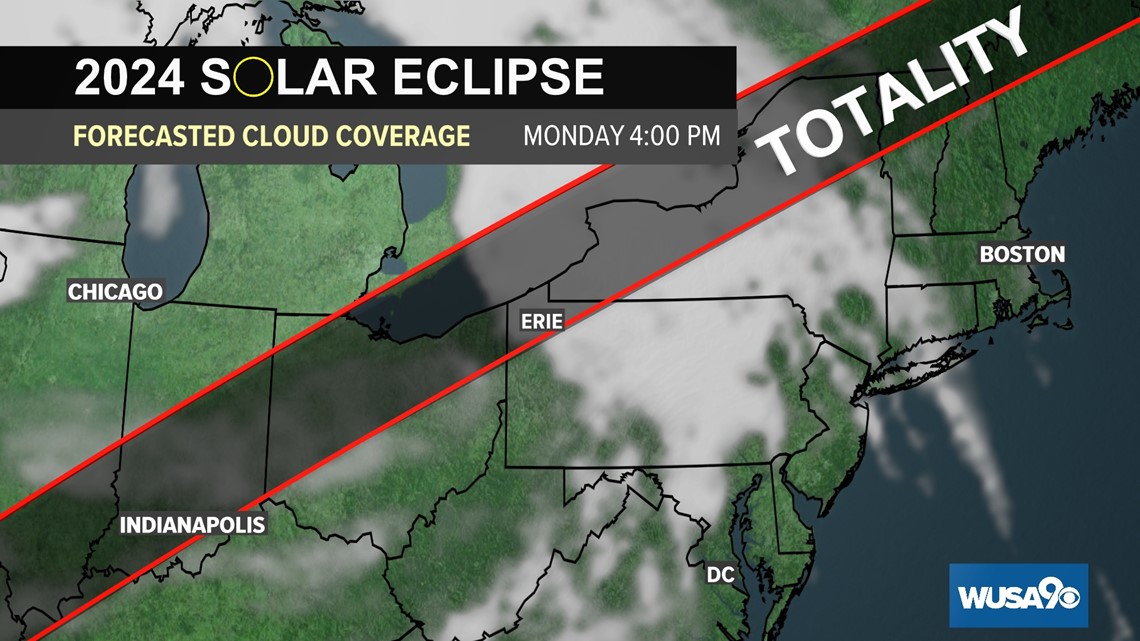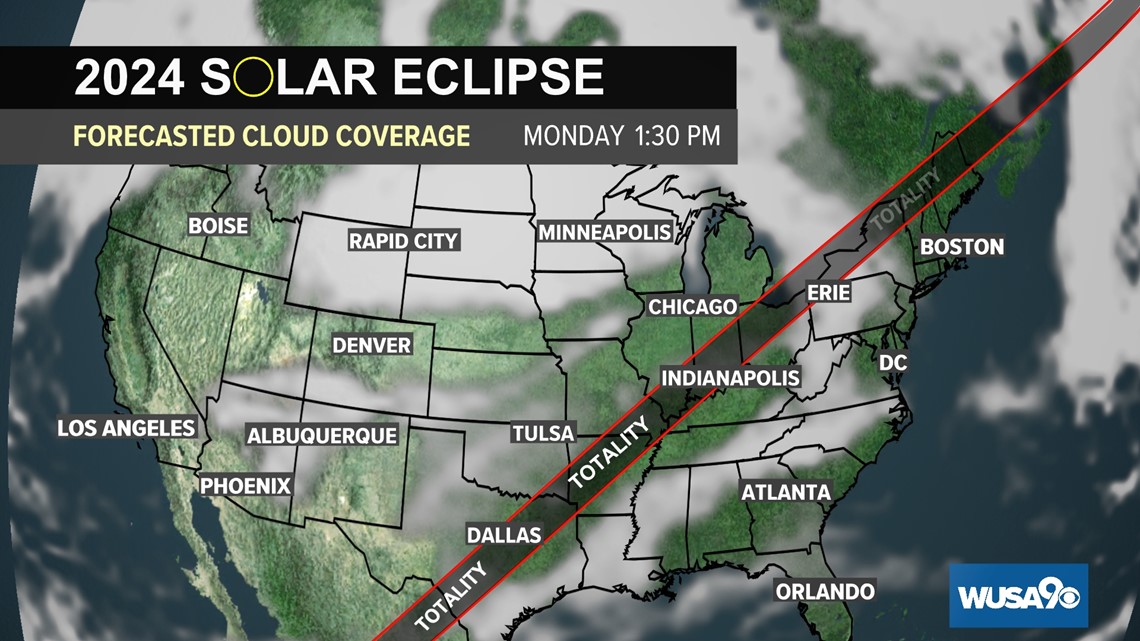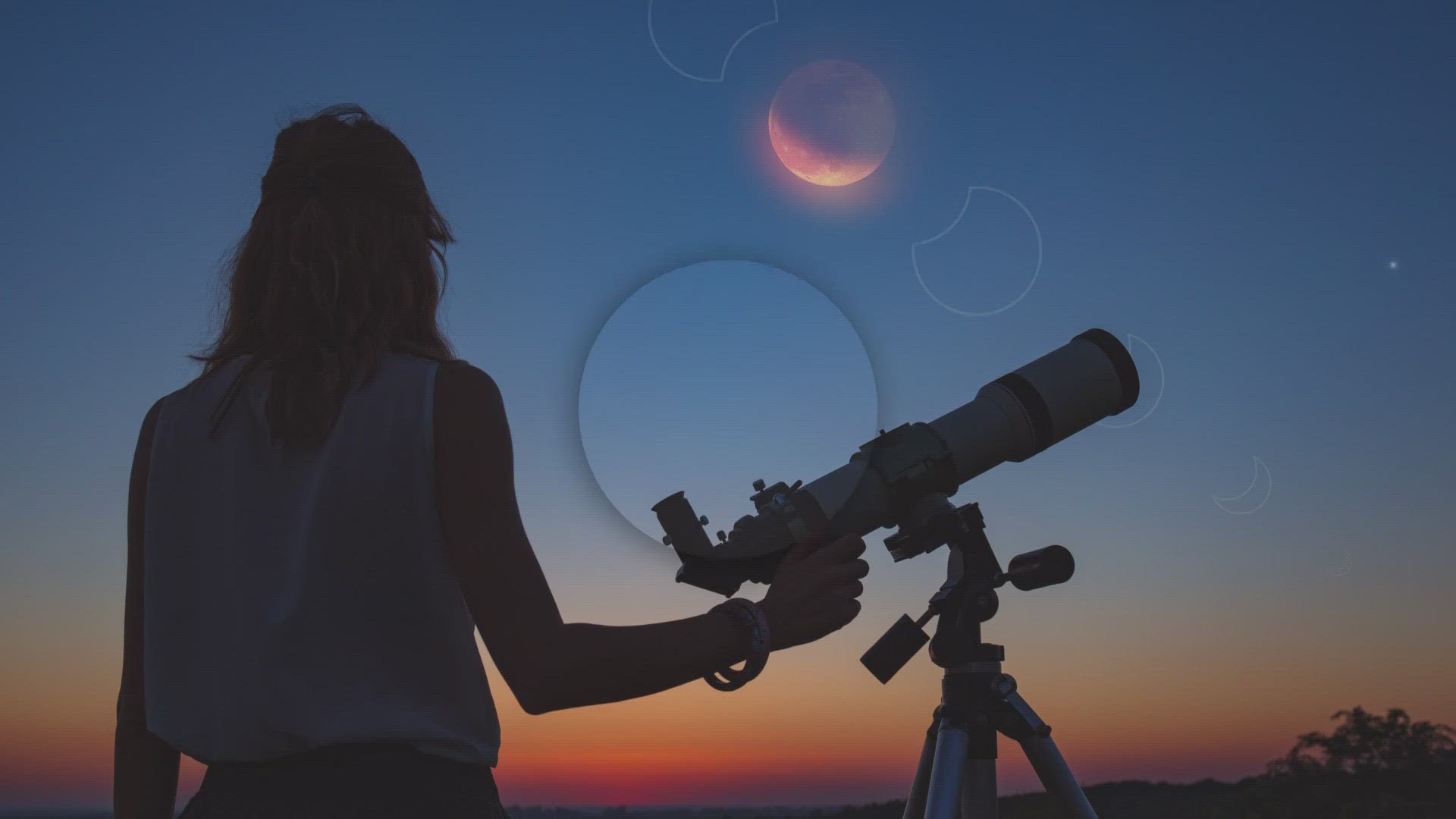WASHINGTON — During solar eclipses, clouds can have a huge impact starting with obscuring the entire event if it's completely overcast. The temperature drop is also much less when it's cloudy.
If we are cloudy on Monday, April 8, we will not really notice a drop in temperature. In a total solar eclipse, the temperature can drop five to eight degrees, depending on how long that area is in totality. For the DMV, we could lose a degree or two as long as we are not cloudy or mostly cloudy. The temperature drop would be much more noticeable if we were in the path of totality.
It's interesting to look back on how many times we in the nation's capital have seen rainfall on April 8 since 1974. Although we cannot predict the weather this April 8, based on past experience, we still find the odds are in our favor that conditions will be dry.


Measurable rainfall has occurred only 18 times on April 8 over the last 50 years. A trace of rainfall occurred in the nation's capital on April 8 another five times over the last 50 years. Although a "trace" of rain is too little to measure, it does mean that it was overcast for a portion of those five days.
That puts the total number of times D.C. has seen rainfall on April 8 at 23 over the last 50 years. That means a little less than half the time, or once roughly every other year, the nation's capital has had rain on April 8. Generally speaking, that means almost half of the April 8's have been cloudy for at least part of the time over the last 50 years.
We do not need to have clear skies between 2 p.m. and 6 p.m. to enjoy the eclipse. We'd still have an amazing experience if it were clear from only 3 p.m. - 4 p.m. Right now we are concerned about a warm front lifting north into the DMV. This front would bring some clouds and even a passing shower. We are still days out and this forecast is preliminary.




Thankfully the cloud cover forecast is looking more optimistic as we get closer to Monday with many areas under the path of totality with relatively good visibility.



